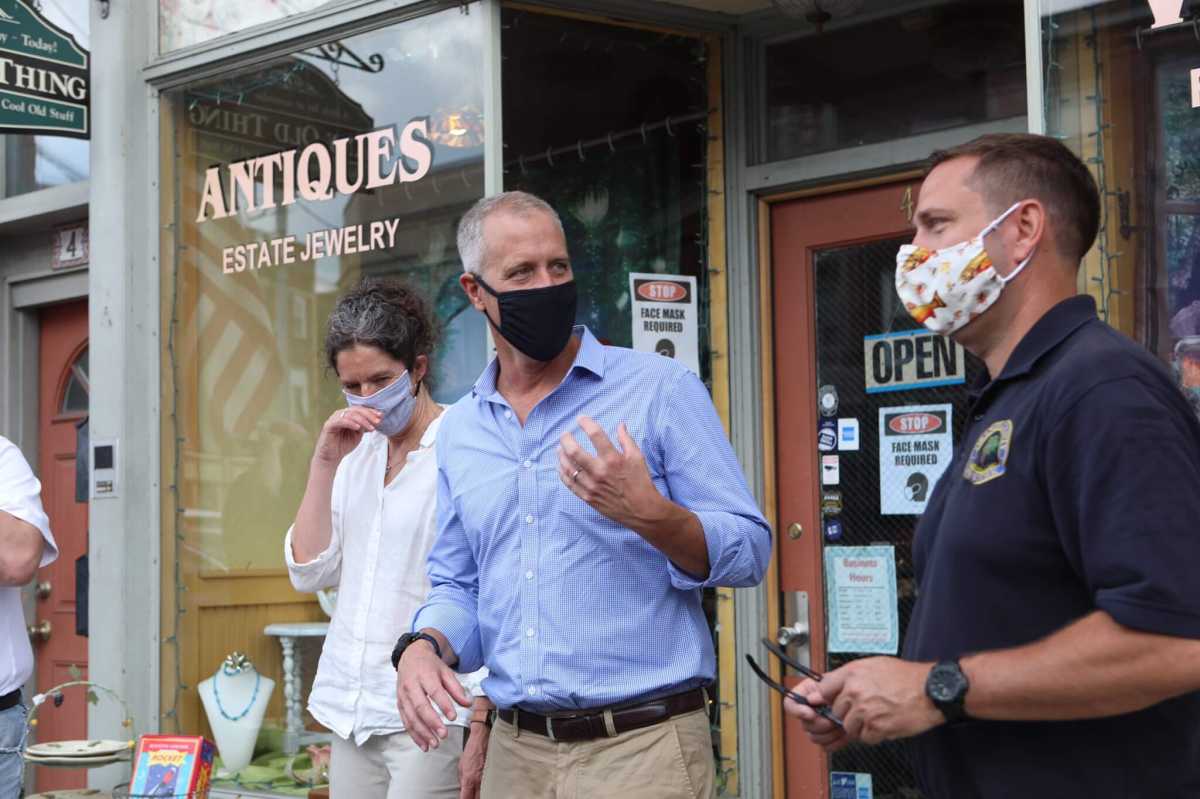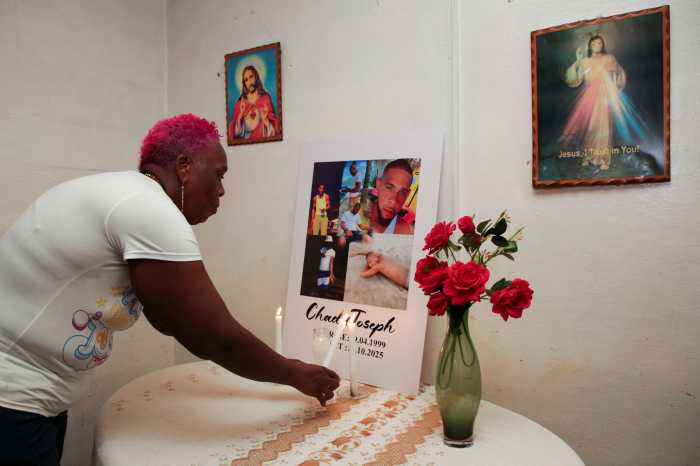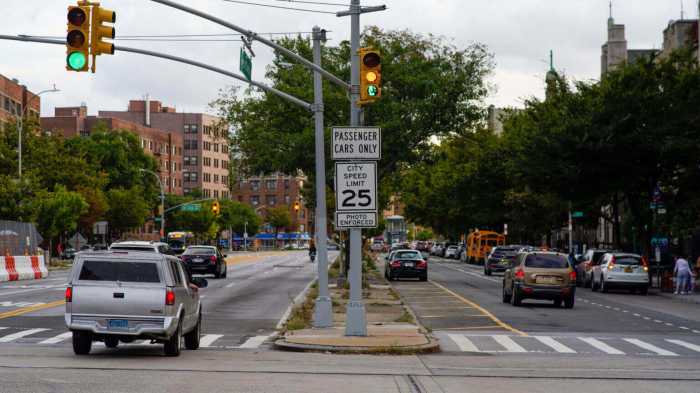Democrats in US House races appear to have underperformed in many districts across the nation and anti-LGBTQ candidates put up a strong showing in New York State, but queer incumbents largely stood their ground and Democrats will likely retain control of the lower chamber after the 2020 election.
Queer insurgents, however, largely struggled — outside of New York State, that is — and House Democrats as a whole were not able to expand their 232-197 edge over Republicans the way they hoped heading into the election. Sitting Democrats were unexpectedly picked off by Republicans in several states, including Virginia and Florida, and the GOP eked out victories in a collection of tight races.
Democrats underperform expectations, but queer representation ticks up slightly in 2020
There were, indeed, two notable bright spots for LGBTQ insurgents — right here in New York. Out gay Bronx City Councilmember Ritchie Torres, running in the the 15th Congressional District, was elected as the first out gay Afro-Latinx member of Congress, while Mondaire Jones won his race in the 17th Congressional District and becomes the first out gay Black member of Congress. Both of those victories were expected after those candidates won contentious primary elections in Democratic strongholds.
But those crucial victories by queer candidates coincided with a wave of positive results for anti-LGBTQ Republican candidates loyal to President Donald Trump, including in New York City and across the state. Many of the tight races were in districts that gradually shifted toward Democrats in 2018, but appear to have ticked back in favor of Republicans.
Notably, the results are still being tallied and a large sum of absentee ballots have yet to be counted.
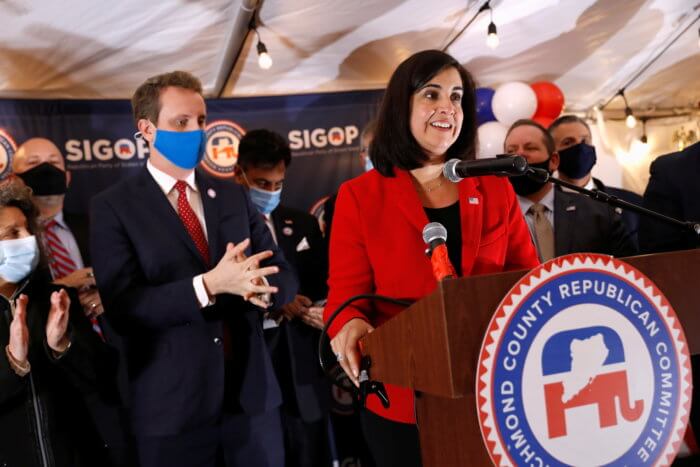
Incumbent Congressmember Max Rose of Staten Island and Brooklyn, mired in an overheated battle for reelection in New York City’s only swing House district, is far behind anti-LGBTQ Assemblymember Nicole Malliotakis — more than 15 points, a margin difficult to imagine being able to close even with absentee ballots pending.
Another incumbent, Long Island Republican Congressmember Lee Zeldin, whose transphobia and homophobia dates back to his time in the State Senate and has continued on Capitol Hill, is leading by more than 60,000 votes, or approximately 22 points, over Stony Brook University scientist Nancy Goroff in New York’s First Congressional District. For now, that margin exceeds Zeldin’s 16-point victory four years ago during the last presidential election cycle. Zeldin has declared victory in that race, but Goroff is insisting that all absentee votes should be counted.
Also on Long Island, anti-LGBTQ Republican Assemblymember Andrew Garbarino beat Democrat Jackie Gordon in the open seat to replace outgoing Republican Congressmember Peter King.
Meanwhile, in upstate New York’s 22nd Congressional District, former Congressmember Claudia Tenney — a close Trump ally who was knocked out of Congress by Democrat Anthony Brindisi two years ago — is up by 11 points, putting her in a strong position to retain the seat she lost two years ago.
Out bisexual candidate Tracy Mitrano was handily defeated by Republican Congressmember Tom Reed, who is leading by nearly a two-to-one margin in upstate New York’s 23rd Congressional District two years after she unsuccessfully challenged him in the midterm elections. Reed declared victory on election night, but Mitrano has yet to concede.
Outside of New York, many queer candidates fell short in their historic bids for House seats. Georgette Gomez of California would have been the first out LGBTQ Latinx woman elected to Congress, but is down by nearly 20 points to fellow Democrat Sara Jacobs. In another Democrat versus Democrat general election matchup in Washington State’s 10th Congressional District, out bisexual state lawmaker Beth Doglio is trailing former Tacoma Mayor Marilyn Strickland by more than 16 points.
In the Midwest, out LGBTQ South Bend attorney Pat Hackett appears to have been routed by Republican Jackie Walorski, who has built an impressive 64.7 to 35.3 percent lead in Indiana’s Second District, while Michigan state lawmaker Jon Hoadley was unable to overcome a homophobic smear campaign leveled by his opponent, 17-term Representative Fred Upton of the Sixth District, who is 20 points ahead of the Democrat after running ads that implied Hoadley is a pedophile and uses crystal meth, among other outlandish claims.
Down in Texas, out lesbian military veteran Gina Ortiz Jones, vying for the seat in the 23rd District, seemingly lost a closer race in her quest to become the first Filipina-American in Congress and the first out LGBTQ person elected to Congress from Texas. The Associated Press declared incumbent Republican Tony Gonzalez the victor in that race after Gonzalez established a four-point lead, but Jones urged caution, saying the race is “far from over.”
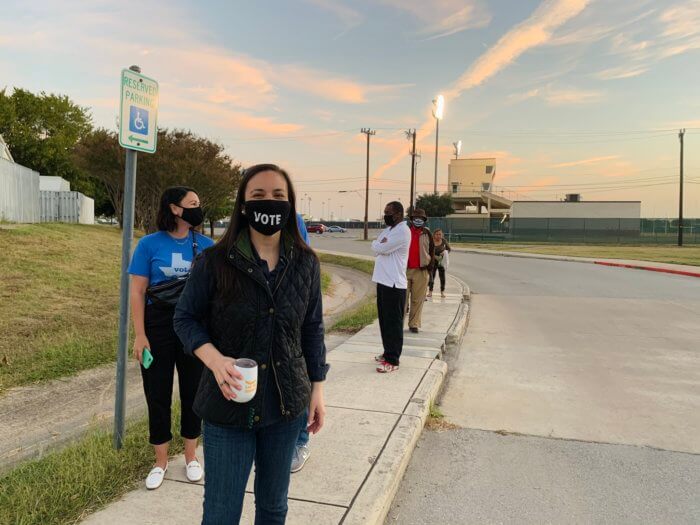
Even some LGBTQ incumbents are standing on shaky ground. Out gay Congressmember Sean Patrick Maloney of New York holds a thin two-point advantage over Republican challenger Chele Farley in Hudson Valley’s 18th District, and freshman Representative Angie Craig of Minnesota is holding onto a narrow two-point advantage in her first re-election bid, though she declared victory. That race has not yet been called.
David Cicilline of Rhode cruised to an impressive victory over a pair of independent challengers; Mark Takano of California again defeated his biennial Republican rival Aja Smith, who has lost to him several times; Chris Pappas of New Hampshire beat Republican opponent Matt Mowers by four points in a race that has been called by the Associated Press; Mark Pocan of Wisconsin, like Takano, also beat a former opponent, Peter Theron, in a rematch; and Sharice Davids of Kansas won re-election for the first time, besting Republicans Amanda Adkins.
To sign up for the Gay City News email newsletter, visit gaycitynews.com/newsletter.

